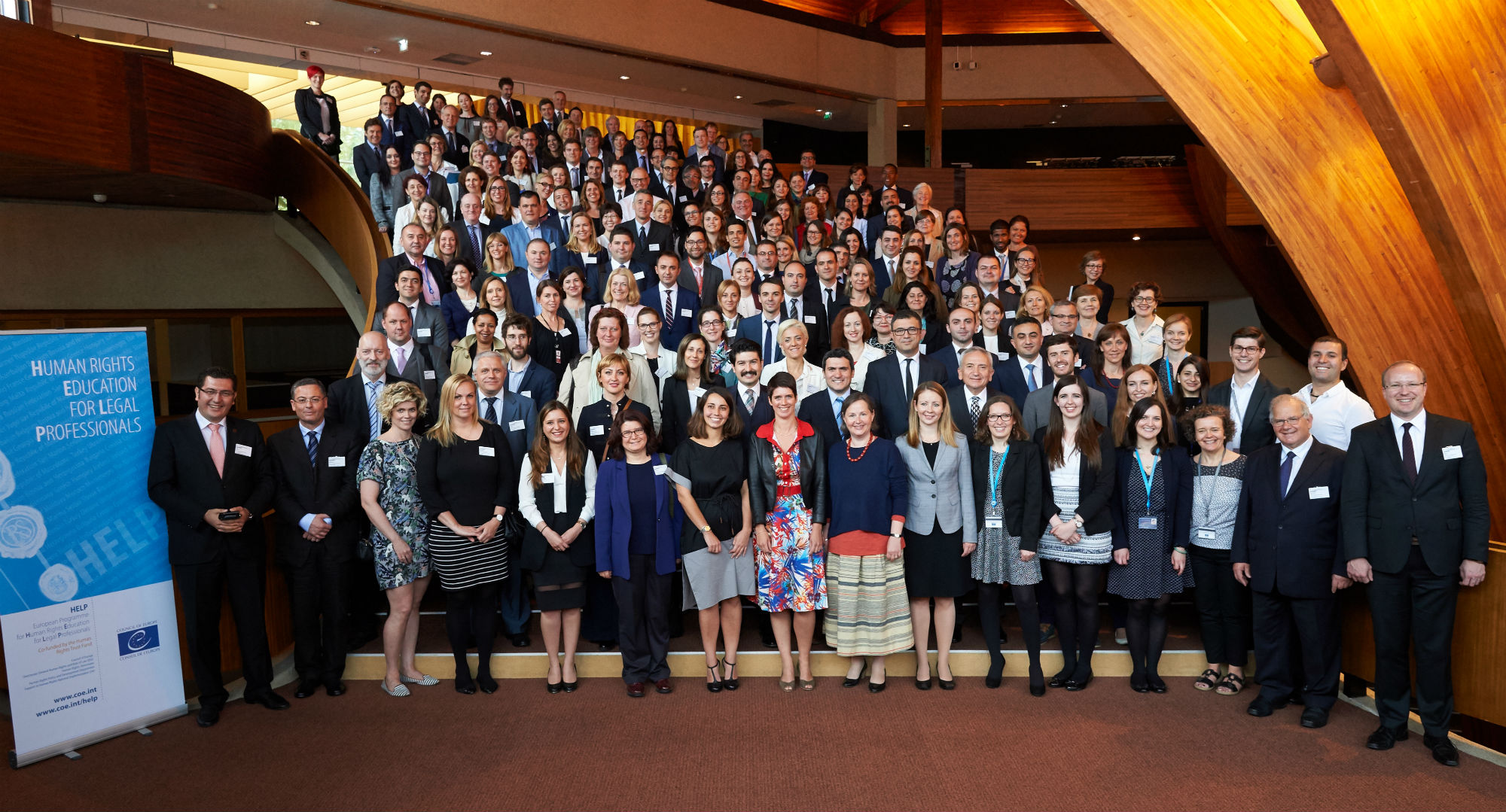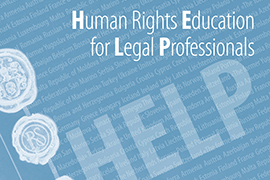|
The annual HELP Network Conference took place this year on 16-17 June and was entitled “HELP, leading the way to case-law harmonisation”. After an inspiring speech from the Secretary General, Thorjbørn Jagland, who reminded our members of the growing importance of this “unique pan-european Network”, Mr Jagland mentioned the importance of HELP in the efforts of the Council of Europe to “sow the Convention into [member states’] national fabric” in an effort to “nationalise the Convention”.
Mrs Katrin Kivi, permanent representative of Estonia to the Council of Europe recalled the importance for legal professionals to “have access to high-quality and up to date training on recent developments in Strasbourg case-law.” HELP also provides an opportunity to react promptly to societal challenges legal professionals are faced with, and helps to create a link with other international organisations.
Tatiana Termacic, head of the Human Rights National Implementation Division of the Council of Europe then took the floor to highlight the importance of harmonisation of national case law in the Council of Europe Member States. In her speech, she reminded that HELP’s objective is not to substitute the national training institutions but to provide them with the necessary tools to allow them to fully achieve their mission. “Bringing coherence in the judicial practice at national level […] is crucial to ensure the greatest protection of human rights in our member states. […] That is why HELP seeks to contribute to harmonisation of judicial practice, […] by offering a harmonised training methodology […] and by harmonising] the content of the training itself.”
The Convention is “our shared responsibility” (Brussels’ Declaration, 2015), and contributes to the stability and liberty on the continent. Within the currently climate faced by Europe, the importance of case-law harmonisation is of great significance, and HELP can lead the way by offering tailor-made à la carte training to legal professionals for all of Europe.
Three working groups were set up and discussed various issues. The first group discussed “Human Rights Education for Legal Professions: Methodological approach and Impact Assessment Tools”. There is a growing added value in using HELP resources in complementarity with other training materials from national training institutions and the ECtHR documents. The challenge remains in the impact assessment of human rights training, which requires further analysis.
A second group discussed “Human Rights Education for Legal Professionals: a Contribution to National Case Law Harmonisation”. The outcome of the discussions was that it is crucial to identify the main issues leading to inconsistencies in judicial practice and conflicting case law. The role of national training institutions and bar associations is to ensure that identified issues are reflected as priorities in the relevant continuous education programmes at national level.
The third group discussed the “Implementation of the Brighton and Brussels Declarations: Training as a shared Responsibility”. The working group concluded that increased visibility of HELP beyond national training institutions and towards universities and NGOs would allow for an improved and wider implementation of Rec(2004)4 and the Brussels and Brighton Declarations.
This year, participants received a printed copy of the HELP Guidebook on Human Rights training methodology for legal professionals, which includes a USB stick containing the electronic and interactive versions of the course, as well as all the templates used for the development of HELP courses or organisation of HELP events.
Finally, new members of the HELP Consultative Board were elected. The board is now composed of the following members: Petros Alikakos, Sandra Budimir, Jasmina Krstenic, Simon O’Toole, Dagmara Rajska, Musa Toprac. You can see their profiles and the board’s terms of reference on the website.
For the first time, the conference was broadcast live online, and was followed by 150 people. The recording of the conference as well as interviews will be available shortly.
The Final Report is available here.
We would like to thank all the organisers and participants of this conference, who made it a success.
|
News United Kingdom

STRASBOURG, France
17/06/2017
- Diminuer la taille du texte
- Augmenter la taille du texte
- Imprimer la page
Tražite vesti iz 2014?




